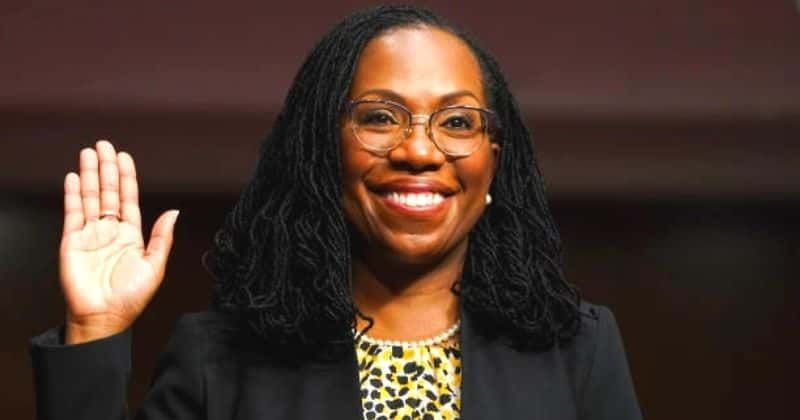
Takuan Amaru
In 2008, when Barack Obama was elected the 44th president of the United States, many claimed the system of racism/white supremacy was, finally, a remnant of the past. In spite of the living conditions of Black Americans not improving during his first term, those same optimists continued to believe a change was right around the corner during the president’s bid for reelection in 2012. However, by the time Obama stepped down in 2016—eight years later—and still, there was no “change we could believe in” it became obvious the fix was in. Last year, in 2021, Vice President Kamala Harris & Senator Tim Scott made headlines with their bold declarations of how they did not believe America was a racist country. And, in 2022, President Biden’s nomination of Ketanji Brown Jackson to the Supreme Court once again has some people, such as Anita Hill, proclaiming this “signals historic change.”
Black Faces in High Places

Black people attaining prestigious positions in the U.S. government is nothing new. Even though some do not consider Barack Obama or Kamala Harris to be black due to not having gone through the “black experience” in the United States as well as their mixed lineages, there is no questioning the ‘blackness’ of Tim Scott, Congresswoman Sheila Jackson Lee, and many others both past and present. So if the issue is not related to blacks being barred from holding prominent positions, then what is it? Could it be that, despite the darkness of their skin, the fullness of their lips, or the coiled texture of their hair, these people have separated themselves from the average black man and woman. Have they abandoned the idea of blackness?
The recent push for reparations by Foundational Black Americans (FBA) and American Descendants of Slavery (ADOS) is a good barometer check—not only on whether or not racism still exists but, perhaps just as importantly, who is on which side of the fence. Since it is impossible for whites to talk down the idea of reparations without being labeled a racist, the people who are in opposition of this movement, in many cases, have black faces. Condoleeza Rice, Artur Davis, Shelby Steele, Thomas Sowell, we can go right down the list. Like former President Obama, many of them have lineages which derive from outside of the United States and, therefore, would not be eligible for benefits according to the parameters set by FBA standards. So why do folks who are not even part of the conversation have so much to say? And why so much opposition?
Some of the opposition to reparations can even be found in the legislation that is supposed to be in favor of blacks receiving tangibles for their forced enslavement. Congressman John Conyers introduced Bill H.R. 40 way back in 1989. This bill has been tossed around, amended and commended and, in 2019, it was again making headlines when Sheila Jackson Lee reintroduced the bill, two years after the retirement of John Conyers. Although many (including myself) erroneously believed HR 40 was a proposal for tangible reparations, one of the reporters for the New Black Media, Mr. Jason Black, has shined a light on what the bill actually proposes. Here is the opening paragraph of Bill H.R. 40.
“To address the fundamental injustice, cruelty, brutality, and inhumanity of slavery in the United States and the 13 American colonies between 1619 and 1865 and to establish a commission to study and consider a national apology and proposal for reparations for the institution of slavery, its subsequent de jure and de facto racial and economic discrimination against African-Americans, and the impact of these forces on living African-Americans, to make recommendations to the Congress on appropriate remedies, and for other purposes.”

Since words which are symbolic and reminiscent of slavery and reparations are written such as “cruelty,” “inhumanity,” or “apology,” it is easy to glance over this and feel confident your friendly, neighborhood congresswoman has it covered. That is until you really take a good look: “To address,” “To establish a commission,” “(To) consider an apology and proposal for reparations,” and “To make recommendations…”
Okay, let me get this straight, we have been waiting since 1989—over 30 years—to establish a commission to consider whether an apology needs to be made, and to make a proposal for reparations. And just in case the opening paragraph was not succinct enough, the goal of HR 40 was again stated in Section 3a, entitled “Establishment and Duties.”
- Establishment.—There is established the Commission to Study and Develop Reparation Proposals for African-Americans (hereinafter in this Act referred to as the “Commission”).
So even if this bill is passed, then the think-tank’s in Washington D.C. would start to consider and make proposals, etc. How long do you think that would take?

Reparations is the new “R-word”
From the 1950s to the 1980s, the cry for “Revolution” was heard from all corners of the globe. From Southeast Asia to South Africa, from the Jim Crow South to East Germany, from China to Cuba, the old ‘Joseph Stalin type’ regimes were being relegated to the outdated pile. Nowadays the word ‘revolution’ is rarely uttered, especially in public, as too much use of this ‘R-word’ (or the other, racism) on social-media outlets could result in being banned—not to mention an unscheduled visit by the FBI or CIA. But if you really think about the implications of dispensing fair compensation to the descendants of American slaves, is this not the same as revolution? If Blacks suddenly were able to compete socio-economically with members of the dominant society, this would remove the very foundation on which white supremacy exists. The Biden Administration, through its massive push for immigrants entering the country, has shown this to be their frame of mind. At this point even illegal immigrants are okay! Why this need to suddenly create a buffer class? Is this in response to blacks, in larger and larger numbers, rejecting mere symbolism of equality? Tactics such as “Juneteenth,” the proposal for Harriet Tubman to be featured on currency and, the latest, the nomination of Ketanji Brown Jackson to the Supreme Court do nothing tangible to change the status-quo. In times past, these types of public gestures satisfied the Civil Rights Generation. But the new generation, instead of hoping for someone else to usher in a ‘change they can believe in’ are, instead, vowing to be that change themselves. This, it seems, is the only change they do believe in. And, incidentally, this goes hand-in-hand with their new slogan: #Cut the Check!

Takuan Amaru is the author of 21st Century Japan Decoded.


